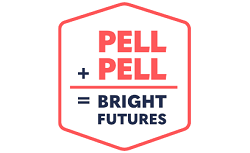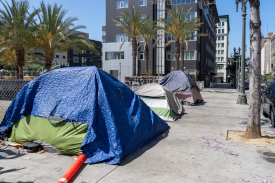 AAU Says College Cost Reduction Act Would Be Counterproductive
AAU Says College Cost Reduction Act Would Be Counterproductive
Last week, AAU President Barbara R. Snyder sent a letter to House Speaker Mike Johnson (R-LA) and House Minority Leader Hakeem Jeffries (D-NY) expressing opposition to the College Cost Reduction Act (H.R. 6951), as passed by the House Education and the Workforce Committee in January. The expansive, 223-page legislation contains numerous proposals that, if implemented, would make sweeping changes to higher education in the areas of financial aid, student loan borrowing and repayment, and college accreditation.
In her letter, President Snyder emphasized that AAU shares the bill’s goal of making college more accessible and affordable, and that our members have been “leaders in improving college affordability and student success.” She argued, however, that the CCRA, in its current form, would not significantly improve college affordability, and “may, in fact, adversely impact access to postsecondary education.”
President Snyder particularly expressed concern regarding certain provisions in the bill that would make colleges and universities assume the risk of unpaid student loans. “These ‘risk-sharing’ provisions would impact students from disadvantaged and underrepresented communities who have historically had a more challenging time with repayments, subsequently discouraging institutions of higher education from enrolling a high number of low-income and first-generation students.” While AAU members would most likely ensure that these students are able to continue accessing our schools, other institutions may not have the resources to do so, she noted.
She also opposed the bill’s imposition of caps on student loans – $50,000 for undergraduate students; $100,000 for graduate students; and $150,000 for students in graduate professional programs. She argued: “These arbitrary thresholds limit the ability of students with the greatest financial need to pursue studies at the institution of their choice” and “force students and their families to turn to more costly private loans … thus unintentionally increasing the cost of higher education.”
President Snyder urged the House leaders to not move forward with the bill in its current form until the concerns outlined in her letter have been addressed. “AAU opposes the CCRA, as the bill will fail to achieve the intended goal of making college more accessible and affordable for all students,” she concluded.
L awmakers Reintroduce Bill to Double Pell Grant Annual Maximum
awmakers Reintroduce Bill to Double Pell Grant Annual Maximum
Last week, a group of lawmakers from both chambers reintroduced the Pell Grant Preservation and Expansion Act. The bill would double the Pell Grant award and index it to inflation; extend Pell Grant eligibility to beneficiaries of the Deferred Action for Childhood Arrivals or DACA program; restore lifetime eligibility for the program to 18 semesters; and enact other changes that would make college more accessible and affordable. The bill represents a major step in ensuring that all students, regardless of status and financial means, can pursue a college education. A fact sheet on the bill is available here.
Introduced nearly 50 years ago, the federal Pell Grant program has helped millions of low- and middle-income Americans attend college. The annual maximum Pell Grant award currently stands at $7,395; AAU is a proud supporter of the #DoublePell campaign, which seeks to increase the maximum Pell award to $13,000 as an effective, targeted way to help make college more affordable.
to achieve the intended goal of making college more accessible and affordable for all students,” she concluded.
 AAU Expresses Support for Innovative Approach to Providing Needed NSF Funding
AAU Expresses Support for Innovative Approach to Providing Needed NSF Funding
AAU issued a statement last week expressing support for an innovative approach proposed by some lawmakers to fund research and infrastructure at the National Science Foundation. The Spectrum and National Security Act of 2024 (S. 4207) would have used proceeds from federal auctions of spectrum bands to provide up to $5 billion for research programs at the National Science Foundation and the National Institute of Standards and Technology.
“Creative mechanisms to support critical scientific research in the United States are welcomed in times of tight budgetary constraints and particularly given the significant FY24 funding reductions to the NSF,” AAU noted, continuing: “While we recognize the challenges associated with negotiating spectrum policy, we encourage Congress to work constructively to resolve remaining differences and advance into law the one-time funding for NSF and NIST contained in this legislation.”
The Senate Committee on Commerce, Science and Transportation was scheduled to mark up the bill last week, but canceled the markup after “partisan differences” emerged. AAU continues to engage congressional leaders on making up shortfalls in the NSF’s budget and realizing the ambitious policy goals of the CHIPS and Science Act of 2022.
 FEATURED RESOURCE: Fund American Science
FEATURED RESOURCE: Fund American Science
 New Report Provides Recommendations for Improving Undergraduate STEM Teaching and Learning
New Report Provides Recommendations for Improving Undergraduate STEM Teaching and Learning
The American Association for the Advancement of Science (AAAS) released a report last week providing recommendations for improving undergraduate STEM education nationwide. AAU Deputy Vice President for Institutional Policy Emily Miller is one of the authors of the report, which is titled “Levers for Change 2023: Enacting a National Agenda for Undergraduate STEM Education.”
The report synthesized the discussions and materials generated at a National Science Foundation-funded workshop hosted by AAAS last year here in Washington. The workshop gathered national leaders from across higher education, including AAU member campuses, to discuss evidence-based practices to foster equity, inclusion, innovation, and scientific excellence in undergraduate STEM education. Miller collaborated with University of Colorado Boulder Professor of Physics Noah Finkelstein and Stanford University Center for Teaching and Learning Director Cassandra Volpe Horii to facilitate that event.
The new report identified several barriers and challenges to quality undergraduate STEM education, including persistent and inaccurate perceptions of who can be a scientist or engineer; outdated instructional methods, materials, and curricula; and limited exposure to STEM in K-12 programs. The report noted that colleges and universities can improve STEM education and create more inclusive and equitable STEM learning environments by examining their own mission and values and understanding the culture and climate of their STEM programs and departments. In addition, the report recommended that colleges and universities expand professional development for instructors in evidence-based teaching and learning practices; reimagine STEM curriculum; and build partnerships and networks with other campuses and the community.
“The accessibility and quality of STEM education have never been more important to the future of the country,” the report noted, adding: “A high-quality, inclusive undergraduate STEM education can have transformative impacts on the lives of individuals and their families, as well as on our communities, our democracy in the United States, and our world.”
News of Interest
AP News: Biden’s Title IX Law Expanding Protections for LGBTQ+ Students Is Dealt Another Setback – The Biden administration’s new rule prohibiting discrimination and harassment based on sexual orientation and gender identity under Title IX has been blocked in Kentucky, Indiana, Ohio, Tennessee, Virginia, and West Virginia by a federal judge. The rule is facing several additional legal challenges and has also been temporarily blocked by courts in Idaho, Louisiana, Mississippi, and Montana. The Education Department said that it is reviewing the ruling.
Science: House Defense Bill Would Block U.S. Research Collaborations with China – The National Defense Authorization Act (NDAA) passed by the House last week contains several concerning provisions that would bar the Department of Defense from allocating funding to any university or individual scientist collaborating with an institution in “a country of concern,” including China. The White House warns that the language of these provisions “would harm DOD’s ability to keep pace with technology by limiting the pool of scientists that the Department engages to conduct national security-related research.”
The Economist: China Has Become a Scientific Superpower – Sustained investments in science have turned China into a “scientific superpower.” In 2022, China surpassed both the United States and the European Union in the number of high-impact research papers produced each year and, in 2023, it reached the top spot in the Nature index, “which counts the contributions of articles that appear in a set of prestigious journals.” The country particularly dominates in applied research and produces more patents than any other nation. “There is little to suggest that the Chinese scientific behemoth will not continue growing stronger,” The Economist noted.
Inside Higher Ed: College Board President Will Oversee FAFSA Launch – College Board President Jeremy Singer is heading to the federal Department of Education to oversee the 2025-26 cycle of the Free Application for Federal Student Aid. Singer will serve as the FAFSA executive adviser and is promising to deliver an “improved [FAFSA] experience” and to “strengthen internal systems and processes, bolster technical capabilities, and drive innovation to help ensure optimal performance.”
The Daily Camera: CU Boulder Awarded $20 Million to Build New Quantum Facility – The National Science Foundation has awarded nearly $20 million to the University of Colorado Boulder to construct a new quantum lab on campus. Once completed, this facility will “take quantum discoveries and find ways to manufacture new technologies and devices including quantum computers, clocks, navigation tools and optical networks.”
Times Higher Education: U.S. Universities to Improve Protest Policies After Gaza Probes – The Department of Education has completed its investigation into the responses of the University of Michigan and the City University of New York to student protests about Gaza on campus. The department ordered both universities to better protect their Jewish and Muslim students. The universities accepted the department’s findings and have promised to take corrective actions.
Featured Research

Targeted Prevention Helps Stop Homelessness Before It Starts
A new study at the University of Notre Dame has found that providing temporary financial assistance to those at imminent risk of becoming homeless decreased the likeliness of their becoming homeless by 81% in the six months, and 73% in the 12 months, following the assistance. The study estimated that the benefits of providing the assistance far exceed the costs: “Communities get $2.47 back in benefits per net dollar spent on emergency financial assistance,” it noted.

U.S. Drought-Monitoring System Outpaced by Climate Changes
A new Dartmouth University-led study of the U.S. Drought Monitor, which is used to “inform disaster response, enact water restrictions, and offset economic losses for agriculture and municipalities,” is not keeping pace with the realities of climate change. The study found that “areas of the country are spending more and more time in severe drought conditions the Drought Monitor still considers to be rare occurrences, raising questions about whether and how federal monitoring should account for long-term climate trends.”
From Our Feeds

AAU President Barbara R. Snyder was recently in Berlin for the annual in-person meeting of the Global Research-Intensive Universities Network (GRIUN). The network consists of AAU and similar associations of leading research universities in other nations, including the League of European Research Universities, the Canadian U15, the United Kingdom’s Russell Group, the Japanese Research University 11, the German U15, and the Australian Group of Eight. This year’s meeting was hosted by the German U15.
The meeting focused on a variety of issues affecting research universities worldwide, including campus protests and free speech; antisemitism and Islamophobia; research security and integrity; and university research funding.